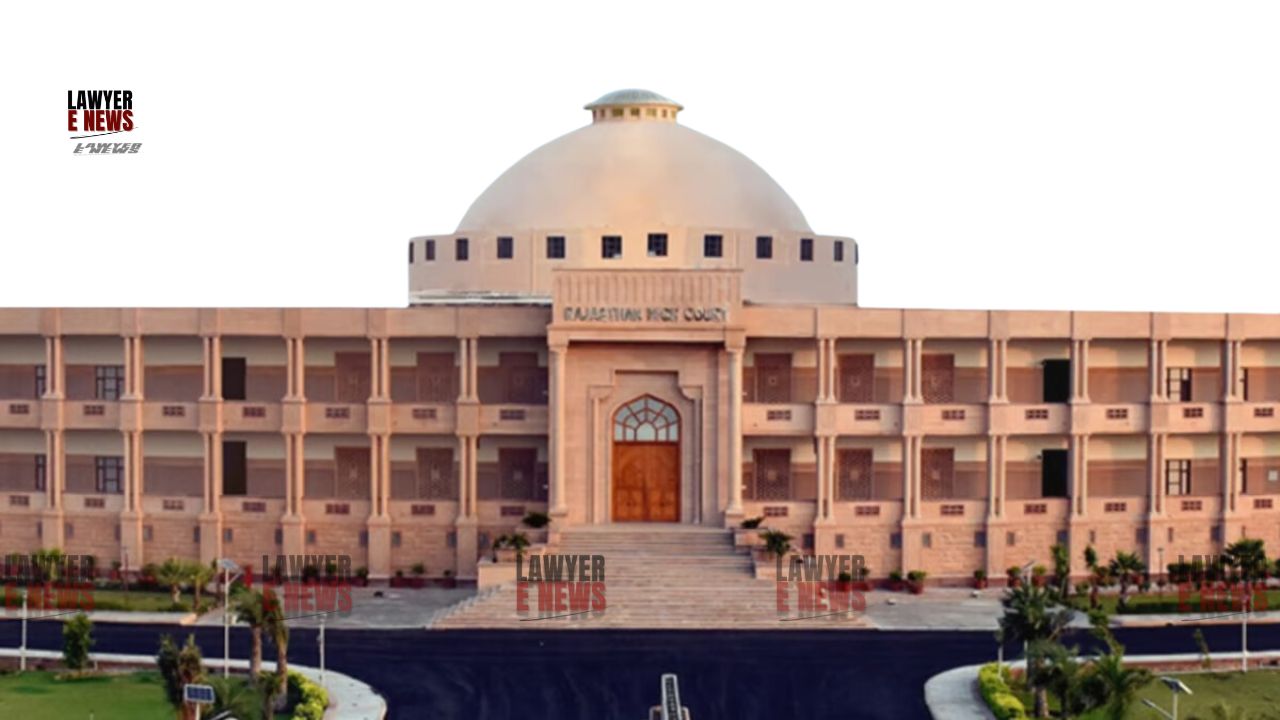-
by Admin
15 February 2026 5:35 AM



Acquittal in 1986 Nagaur murder case overturns conviction due to unreliable eyewitness accounts and lack of corroborative evidence. The Rajasthan High Court has acquitted Jog Singh, previously convicted for the 1986 murder of Ratan Singh, citing the prosecution's failure to prove the case beyond a reasonable doubt. The judgment, delivered by a bench comprising Justices Pushpendra Singh Bhati and Rajendra Prakash Soni, underscores the importance of credible evidence and the scrutiny required for testimonies of interested witnesses.
Facts of the Case: Jog Singh was accused of murdering Ratan Singh on October 20, 1986, in Village Barathal Kallan, District Nagaur. According to the prosecution, Jog Singh, armed with a 12 bore gun, approached the field where Ratan Singh and his relatives were working, challenged Ratan Singh, and then shot him multiple times. Afterward, he allegedly set fire to the complainant's Dhani (hamlet) before fleeing. The incident was witnessed by Khag Singh (PW-1) and his sons, Dul Singh (PW-2) and Labu Singh (PW-3), who reported the crime to the police. Jog Singh was charged under Sections 302, 436, and 447 of the IPC and Section 3/27 of the Arms Act, and was convicted by the Additional District & Sessions Judge, Nagaur, in 1989.
Eyewitness Testimonies: The court found significant discrepancies in the testimonies of the key eyewitnesses—Khag Singh, Dul Singh, and Labu Singh. The defense successfully argued that the witnesses, all relatives of the deceased and hostile towards the appellant, were not present at the scene during the incident. The lack of physical evidence, such as the absence of tools and the bundles of shrubs they claimed to be cutting, further undermined their credibility. "The presence of these three alleged eye-witnesses at the spot is not found trustworthy on the basis of the purpose for which they were citing their presence at the scene of the incident," the court noted.
Motive and Enmity: The court acknowledged the longstanding enmity between the families due to a boundary dispute, which could have motivated false accusations. The justices emphasized that while enmity can drive criminal acts, it can equally lead to wrongful implications. "Enmity, undoubtedly, is a double-edged weapon; it may be a motive for commission of crime; it may also be a motive for false implication," the judgment stated.
Prosecution's Case and Investigation Flaws: The judgment highlighted the prosecution's failure to provide a consistent and reliable narrative. The investigating officer's testimony did not support the presence of eyewitnesses at the scene, and the site inspection revealed no evidence of the activities described by the witnesses. Additionally, the testimony of another witness, Jerup @ Jayrupram, who initially claimed not to have witnessed the shooting but later turned into an eyewitness, further complicated the prosecution's case. The court found his statements unreliable due to significant alterations and personal enmity with the accused.
The court reiterated that for a conviction in a murder case, the prosecution must establish guilt beyond a reasonable doubt through reliable and trustworthy evidence. The bench criticized the trial court for accepting the prosecution's evidence without proper scrutiny. "Mere production of the evidence would not lead to conviction. It is its reliability and trustworthiness that matters," the court emphasized.
Justice Rajendra Prakash Soni remarked, "There is no credible and trustworthy evidence to come to the conclusion that it was the appellant Jog Singh who committed the offence." Justice Pushpendra Singh Bhati added, "The Trial Court has not appreciated the evidence available on record properly."
The Rajasthan High Court's judgment highlights the judiciary's commitment to ensuring that convictions are based on robust and credible evidence. This decision serves as a reminder of the stringent standards required for criminal convictions and the careful evaluation needed for testimonies from interested parties. The acquittal of Jog Singh underscores the importance of maintaining the integrity of the judicial process and ensuring that justice is served based on concrete evidence.
Date of Decision: May 29, 2024
